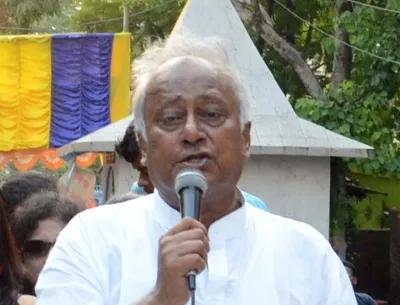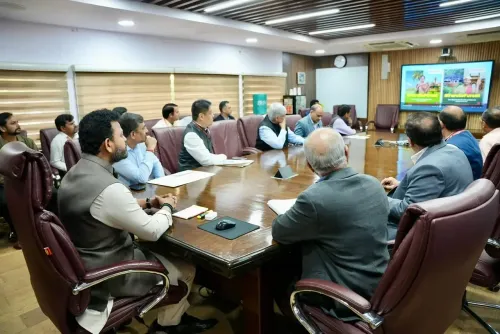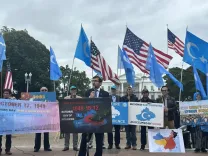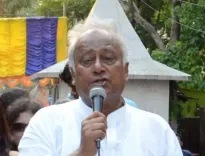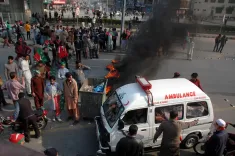Prominent Geopolitical Analysts to Explore India's Essential Role in Crafting a New World Order at MPAGD 2025
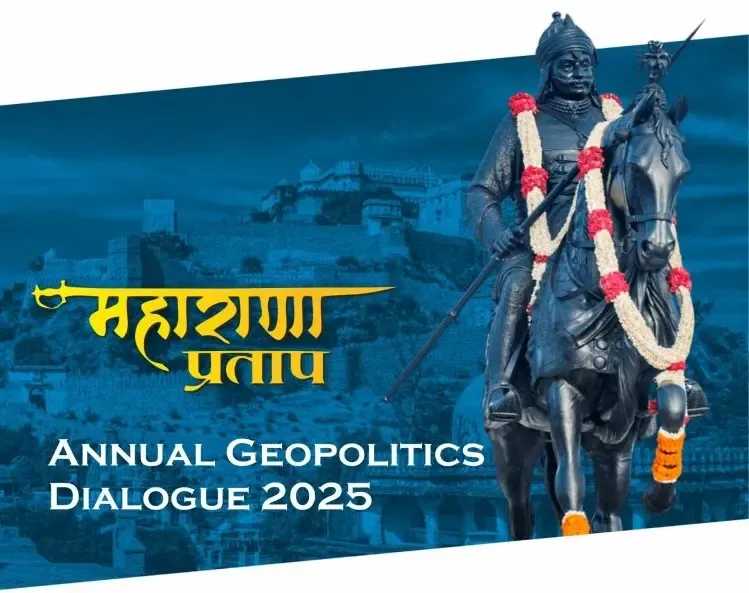
New Delhi, Jan 8 (NationPress) Esteemed geopolitical analysts, policy leaders, academics, and diplomats are set to engage in the 4th Maharana Pratap Annual Geopolitics Dialogue (MPAGD 2025), which is being collaboratively organised by the Ministry of External Affairs (MEA) and the Usanas Foundation, in Jaipur next month.
The annual gathering will revolve around the theme of 'Building Tomorrow: Shaping the Future', aiming to foster meaningful discussions and showcase India’s vision and strategic plan for the future global order.
Minister of State for External Affairs Kirti Vardhan Singh will be delivering the keynote address, while Israeli Ambassador to India Reuven Azar will also speak to attendees during this two-day conference.
Other prominent figures confirmed to attend include Lt. Gen. Arvinder Lamba, the Vice Chief of Army Staff and IPCS President; Andrey Kortunov, Academic Director at the Russian International Affairs Council; Zhang Weiwei, Professor at Fudan University and Director of its China Institute; Rohan Gunaratna, Professor of Security Studies at Nanyang Technological University, Singapore; Michael Rubin, Senior Fellow at the American Enterprise Institute and former Pentagon Official; Nikos S. Panagiotou, Professor at Aristotle University; Ambassador Sujan Chinoy, Director General of the Manohar Parrikar Institute for Defence Studies and Analyses (MP-IDSA); and Ambassador D.B. Venkatesh Varma, former Ambassador of India to the Russian Federation and Distinguished Fellow at VIF.
As stated by Abhinav Pandya, Director, Founder, and CEO of the Usanas Foundation, a think tank based in Udaipur focusing on security and foreign policy, the geopolitics dialogue will tackle crucial topics such as the implications of a multipolar world order on global alliances, regional conflicts, and the role of international institutions in preserving stability. It will also explore how Artificial Intelligence (AI) may transform the landscape of warfare and global security.
In light of the significant transformations occurring in the global order—marked by clear shifts across economic, social, cultural, technological, defense, environmental, developmental, geopolitical, and geoeconomic domains—the current era is defined by uncertainty and instability, characterized by geopolitical tensions and armed conflicts, alongside concerns regarding the influence of disruptive technologies on employment, privacy, and safety.
"These factors reflect a transitional phase. Nonetheless, at this crucial point, there is an urgent need to envisage a future that is just, prosperous, and supportive of human well-being. India, with its rich civilizational history exceeding 10,000 years, its prominent leadership role within the Global South, and its status as a vibrant geopolitical player and economic force, is well-positioned to significantly influence the creation of the new world order," Pandya informed IANS.
Throughout the event, there will be numerous brainstorming sessions centered around various sub-themes to better understand the ongoing transition in the world order and to formulate policies rooted in civilizational wisdom for the future.
"The MPAGD initiative seeks to address vital questions and articulate India's vision for the future amidst the current turmoil. It also serves as a modest tribute to Maharana Pratap, a remarkable diplomat, administrator, statesman, and warrior from Rajasthan who resisted Mughal dominance," he added.


